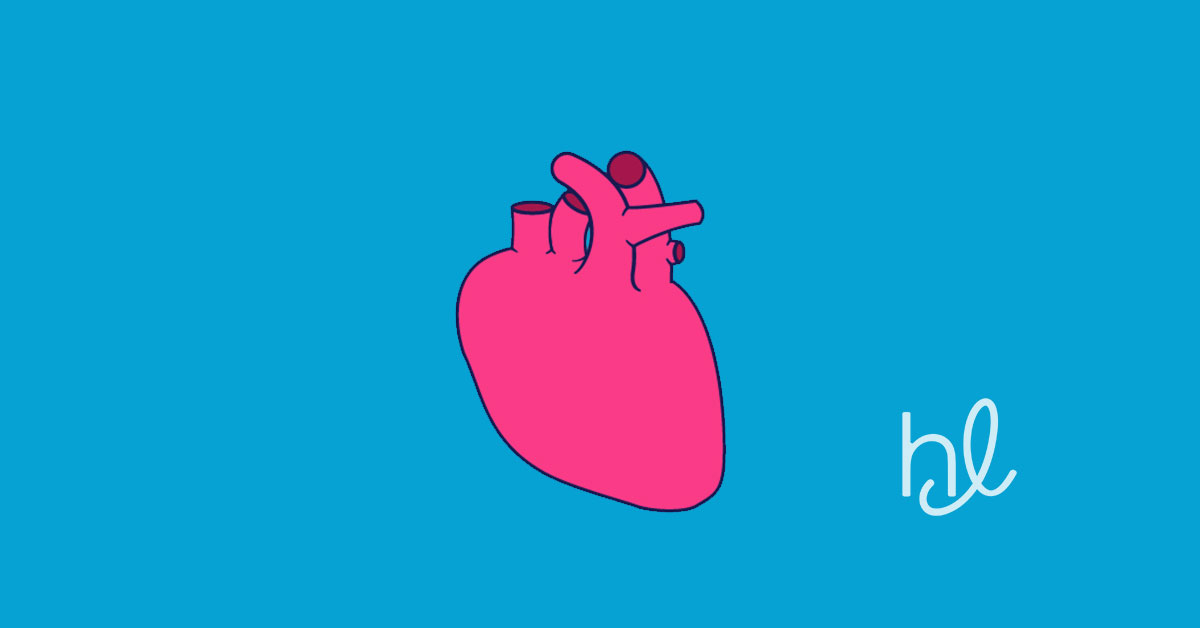Here's Why the 'Breast Is Best' Mantra Can Be Harmful
When Anne Vanderkamp delivered her twin babies, she planned to exclusively breastfeed them for a year.
'I had major supply issues and didn't make enough milk for one baby, let alone two. I nursed and supplemented for three months,' she told Healthline.
When her third child was born 18 months later, Vanderkamp had difficulty producing milk again and stopped breastfeeding after three weeks.
'I didn't see the point in torturing myself trying to increase supply when nothing ever worked,' Vanderkamp said.
Some reasons women stop breastfeeding:
- difficulties with lactation
- mother's illness or the need to take medicine
- effort associated with pumping milk
- infant nutrition and weight
While she was confident that her choice to feed her babies formula was the best way for them to thrive, Vanderkamp says she felt disappointed she couldn't breastfeed them and judged herself for not being able to.
The 'breast is best' campaign only made her feel worse.
'The 'breast is best' references written on the cans of formula were absolutely ridiculous. They were a constant reminder that my body was failing my babies,' she said.
The push to only breastfeed can have severe consequences for the baby
For Dr. Christie del Castillo-Hegyi, this push to only breastfeed resulted in life-long consequences for her son.
In 2010, the emergency medicine physician gave birth to her son, who she was eager to breastfeed. However, worried that her baby's fussy behavior was a result of him being hungry, del Castillo-Hegyi visited his pediatrician the day after she brought him home.
There, she was told he had lost a lot of weight, but that she should continue to breastfeed. A few days later, she was still concerned and rushed her baby to the emergency room where it was determined he was dehydrated and starving.
Formula helped stabilize him, but she says that being without food for the first four days of his life caused brain damage.
Del Castillo-Hegyi regrets not acting more quickly on her instincts as a medical professional and mom.
The 'Breast is Best' mantra comes out of a push from health organizations to promote better nutrition in children. It may have originally also been due to low rates of breastfeeding mothers.
Initiatives that supported this type of mantra include in 1991, when the World Health Organization (WHO) and the United Nations International Children's Emergency Fund (UNICEF) launched the Baby Friendly Hospital Initiative (BFHI).
Created in accordance with the internationally-accepted code Ten Steps to Successful Breastfeeding, the initiative pushes to ensure that hospitals promote exclusive breastfeeding for six months, 'and continued breastfeeding for up to two years of age or beyond, while providing women with the support that they require to achieve this goal, in the family, community and workplace.'
Organizations such as the American Academy of Pediatrics and the Office on Women's Health, consistently report that breast milk offers a wealth of benefits for babies, including containing all the nutrition they need (except for sufficient vitamin D) and antibodies to fight disease.
According to the Centers for Disease Control and Prevention (CDC), of infants born in 2013, 81.1 percent started out being breastfed. However, most women aren't exclusively breastfeeding or continuing to breastfeed as long as recommended. Furthermore, 60 percent of mothers who stopped breastfeeding did so earlier than desired, according to a 2013 study.
For del Castillo-Hegyi, this personal experience pushed her to cofound the nonprofit organization Fed is Best in 2016 with Jody Segrave-Daly, a newborn intensive care unit nurse and certified lactation consultant.
In response to concerns around hospitalizations of exclusively breastfed newborns due to hypoglycemia, jaundice, dehydration, and starvation, the women aim to educate the public about breastfeeding and when it's necessary to supplement with formula.
They both hope their efforts will stop babies from suffering.
'[The notion that] breastfeeding has to be best for every single child, birth to six months — no exceptions… or yes there are exceptions, but we won't talk about those — is harmful,' del Castillo-Hegyi told Healthline. 'We have to stop believing [in] this 'black and white' world because it harms moms and babies.'
'We're receiving a message that does not jive with reality,' said del Castillo-Hegyi. 'Best is best — [and] 'best' looks different for every mom and baby. We have to start recognizing that and living in the real world, [which] means some babies need formula exclusively, some babies need both, and some babies can breastfeed exclusively and they are good.'
Many parents who opt not to breastfeed experience a lot of judgement
In addition to the physical complications that may have come about because of the 'breast is best' mantra, there's also the fear of being judged by others for not breastfeeding.
Heather McKenna, mother of three, says breastfeeding was stressful and hard, and she felt liberated when she was done breastfeeding.
'Looking back, [I] wish I hadn't felt so pressured to stick it out as long as I did. A big part of that pressure came from judgement that I felt from others who believed breastfeeding was the best way to go,' says McKenna.
For women who decide to exclusively turn to formula, del Castillo-Hegyi says they should do so with no regrets.
'Every mother has the right to choose how she uses her body to feed or not feed her child. [Breastfeeding] has really evolved into this vicious mommy trophy winning contest where we are allowed to say to mothers that they are [less than] when they don't want to breastfeed. You don't have to have a reason. It's your choice.'
Beth Wirtz, mother of three, agrees. When blocked milk ducts prevented her from breastfeeding her first child, she decided not to try with her second and third.
'I fought against those who would shame me for using formula. [Friends] kept reminding me that breast is best and that [my girls] wouldn't get all that [they] needed from a bottle,' says Wirtz.
'I don't think I lost anything by not breastfeeding and I don't think my kids' immune systems were in any way hindered by not breastfeeding. It was my choice, my decision. I had a medical reason, but many other women do so for reasons that are not medical and that is their prerogative,' she adds.
One way women often feel judged is when they're asked if they're breastfeeding. Whether the question comes with judgement or genuine curiosity, Segrave-Daly and del Castillo-Hegyi say the following are responses to consider:
- 'No. It didn't work out for us. We're so grateful for formula.'
- 'No. It didn't work out as we planned.'
- 'Thank you for your interest in my child, but I prefer not to talk about that.'
- 'I generally don't share information about my breasts.'
- 'My baby will be fed so they're safe and they can thrive.'
- 'My and my baby's health comes first.'
Ultimately, it's down to having all the information before making a decision to breastfeed or not
As a lactation consultant, Segrave-Daly says she understands that encouraging moms to exclusively breastfeed is with good intention, but she also knows that moms want and need to be informed.
'They need to know all the risks and benefits so they can be adequately prepared to breastfeed,' she told Healthline.
Segrave-Daly says it's crucial that mothers make a decision on whether or not to breastfeed based on accurate information. This, she explains, could help avoid an emotional crash.
'They can't make that decision fairly if breastfeeding has been taught as having magical power[s] and that you are the best mother if you [breast]feed your baby, when every individual and family unit has unique feeding needs,' she says.
People are starting to understand that what matters most is doing what's best for both the parent and the baby
Del Castillo-Hegyi says she's hopeful that more people are understanding that 'breast is best' isn't always the case.
'[It's exciting to] see people understand why 'fed is best'… is actually true. A child who is not getting fed enough is not going to have good health outcomes or neurological outcomes,' she says.
She adds that when it comes to the breastfeeding versus formula conversation, parents shouldn't be scared into thinking that giving their child formula is dangerous or that breastfeeding is the only option. Simply put, it should be about promoting optimal health for both the parent and their child.
'Every mom and child is different and every mom and child's needs deserve to be addressed and optimized — and not for the purposes of achieving some organization's goals, but to achieve optimal outcomes for that mom and baby. We are hopeful [as] more moms speak out and the more attention [this] receives.'
Cathy Cassata is a freelance writer who specializes in stories around health, mental health, and human behavior. She has a knack for writing with emotion and connecting with readers in an insightful and engaging way. Read more of her work here.
-
 6 interesting genetic traits that children will inherit from their parents
6 interesting genetic traits that children will inherit from their parents
-
 7 effects of asparagus on child development
7 effects of asparagus on child development
-
 Does cutting blood hair for babies bring good luck?
Does cutting blood hair for babies bring good luck?
-
 The more babies eat, the higher the height they develop, especially the second kind
The more babies eat, the higher the height they develop, especially the second kind
-
 Children with chicken pox should eat to quickly recover from the disease, without leaving a deep scar?
Children with chicken pox should eat to quickly recover from the disease, without leaving a deep scar?
-
 The more food is cooked, the better it can be for health, especially the second type
The more food is cooked, the better it can be for health, especially the second type
-
 Gleevec: Side Effects, Generic, Dosage, and More
Gleevec: Side Effects, Generic, Dosage, and More
-
 Drinking from the Tap vs Brita: Are Water Filter Pitchers Actually Better
Drinking from the Tap vs Brita: Are Water Filter Pitchers Actually Better
-
 The No BS Guide to Added Sugar
The No BS Guide to Added Sugar
-
 A-Spot: 10 FAQs on What It Is, How to Find It, Positions to Try, More
A-Spot: 10 FAQs on What It Is, How to Find It, Positions to Try, More
-
 Gluten-Free Isn't Just a Fad: What to Know About Celiac Disease, Non-Celi
Gluten-Free Isn't Just a Fad: What to Know About Celiac Disease, Non-Celi
-
 See this sign: Think about the lung's warning immediately, be careful of your body being seriously poisoned
See this sign: Think about the lung's warning immediately, be careful of your body being seriously poisoned































